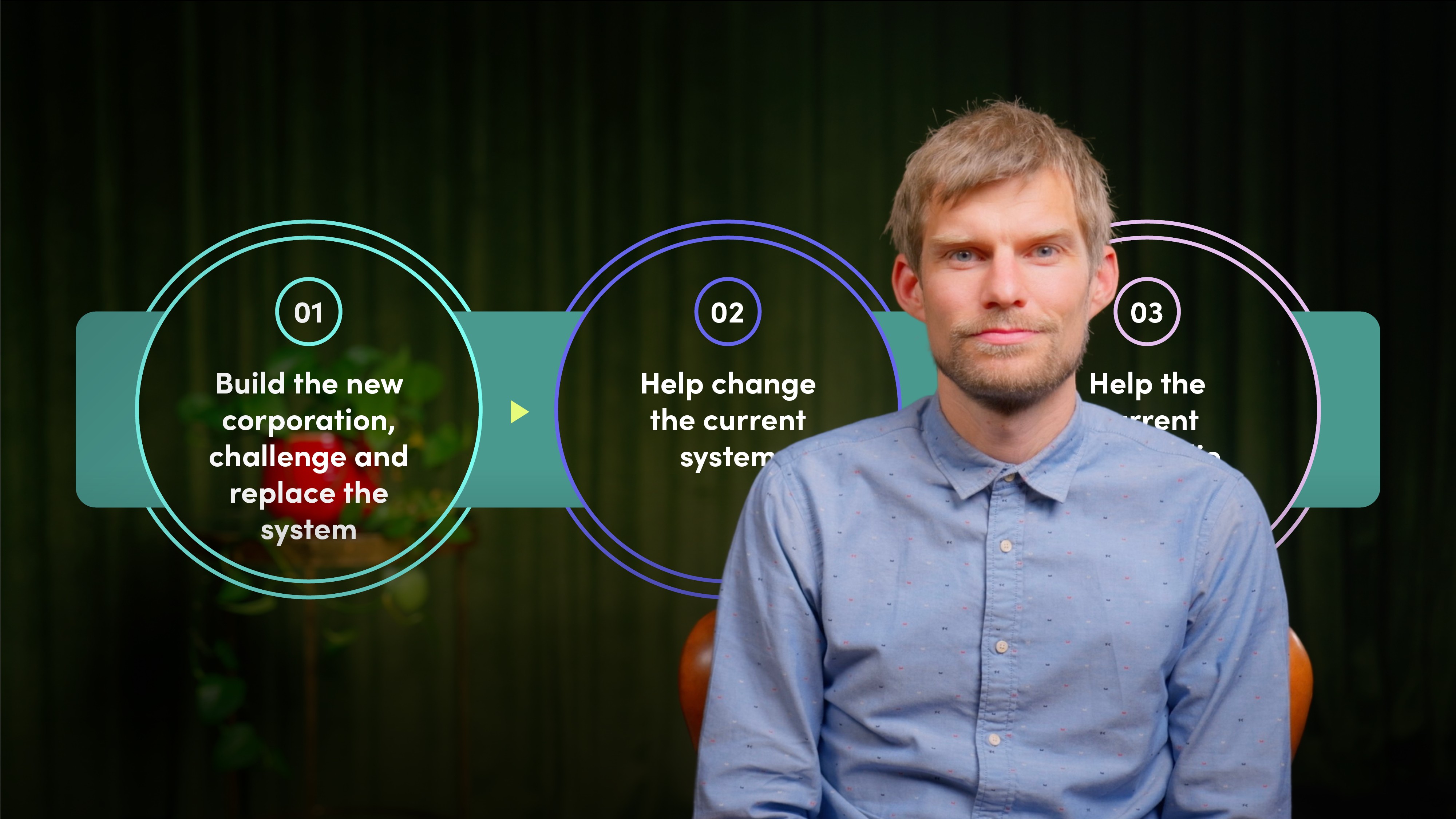
Reimagining Corporations through Regenerative Agriculture

Koen van Seijen
20 years: Food and agriculture
In this final video, Koen van Seijen explores the 4th and final theme, corporate regeneration. He focuses on the potential for transforming major players in the food and agriculture sector, such as supermarkets and input companies. He addresses the risks and challenges involved, as well as strategies for achieving meaningful change in this complex system. Get ready to delve deep into the world of systems change!
In this final video, Koen van Seijen explores the 4th and final theme, corporate regeneration. He focuses on the potential for transforming major players in the food and agriculture sector, such as supermarkets and input companies. He addresses the risks and challenges involved, as well as strategies for achieving meaningful change in this complex system. Get ready to delve deep into the world of systems change!
Subscribe to watch
Access this and all of the content on our platform by signing up for a 7-day free trial.

Reimagining Corporations through Regenerative Agriculture
10 mins 42 secs
Key learning objectives:
Understand the significance of corporate regeneration in the food and agriculture sector
Identify strategies for fostering systems change within existing corporate frameworks
Identify investment opportunities that can support corporate regeneration
Outline the framework needed to implement corporate regeneration
Overview:
Subscribe to watch
Access this and all of the content on our platform by signing up for a 7-day free trial.
Subscribe to watch
Access this and all of the content on our platform by signing up for a 7-day free trial.

Koen van Seijen
There are no available Videos from "Koen van Seijen"





























